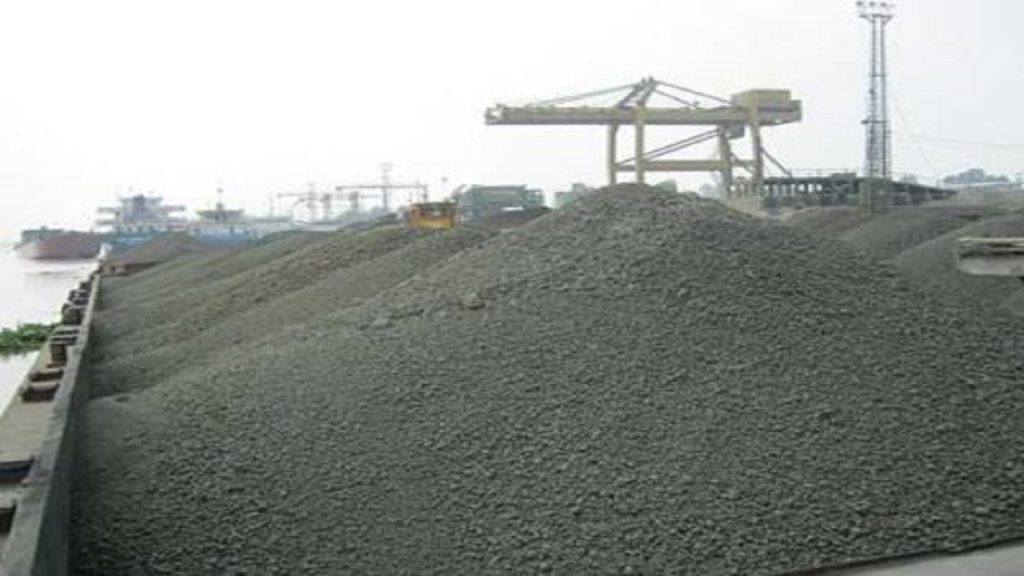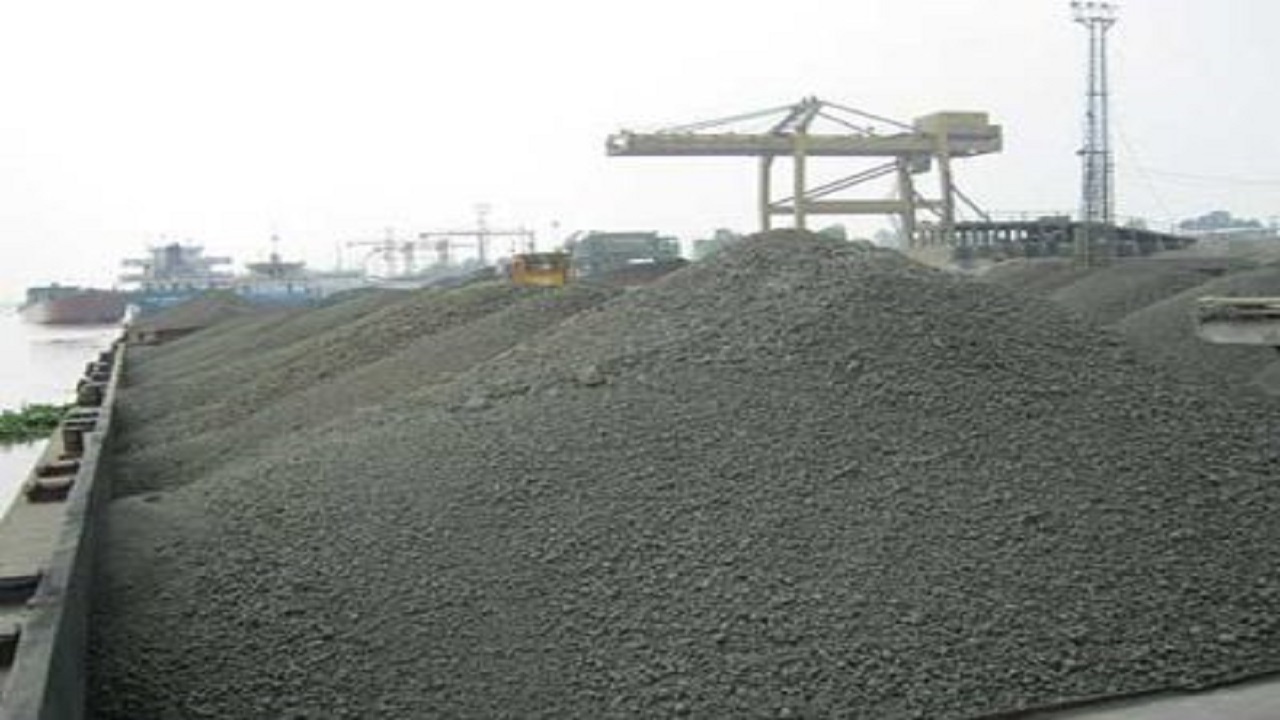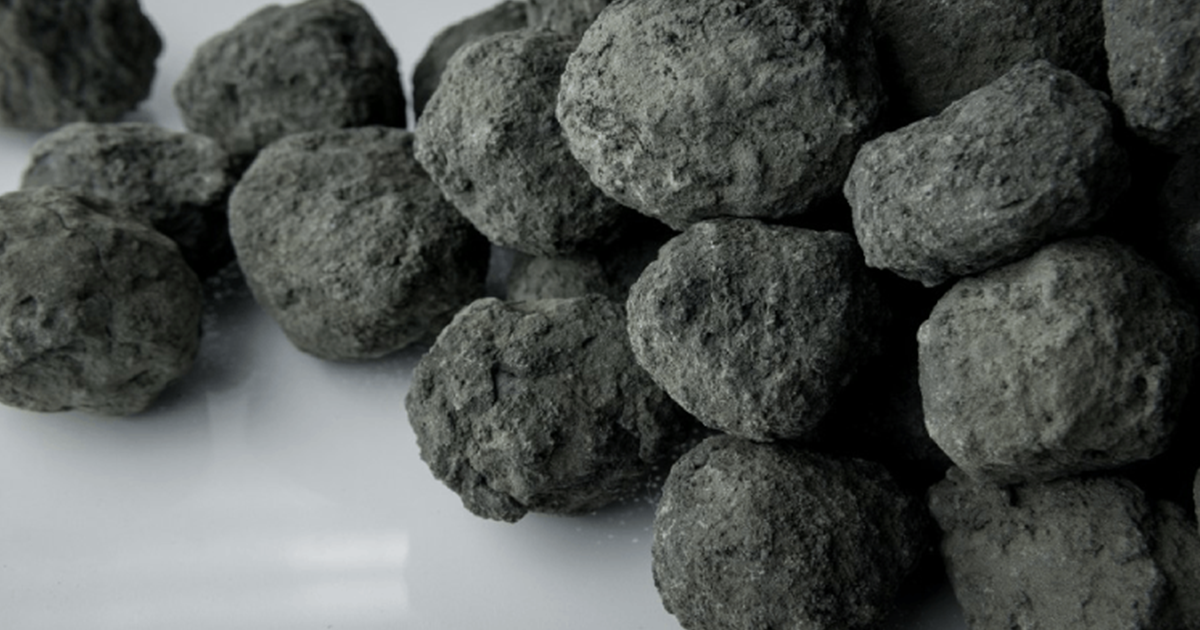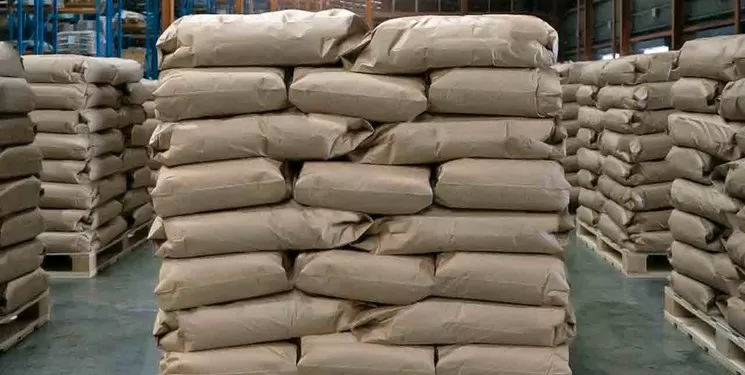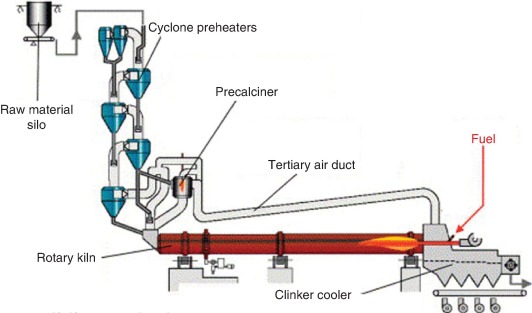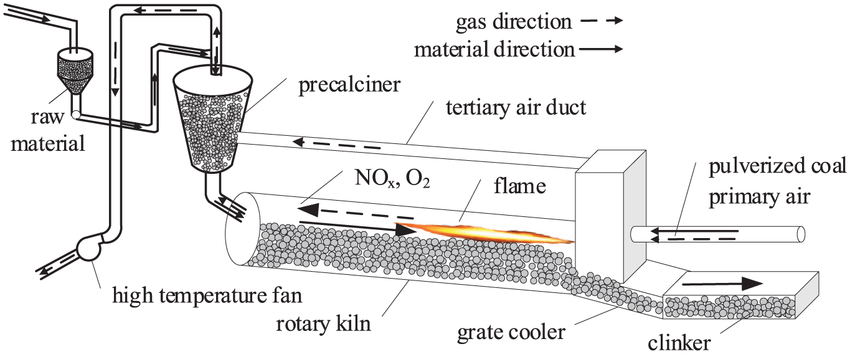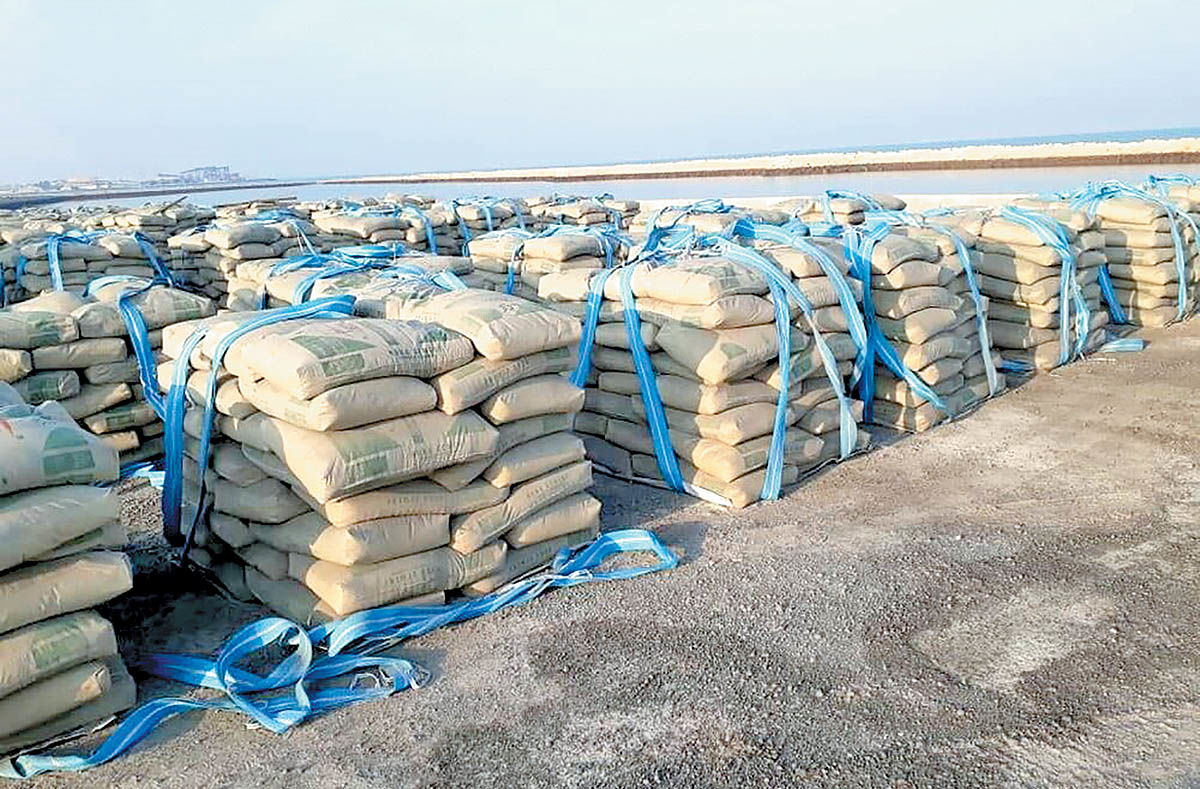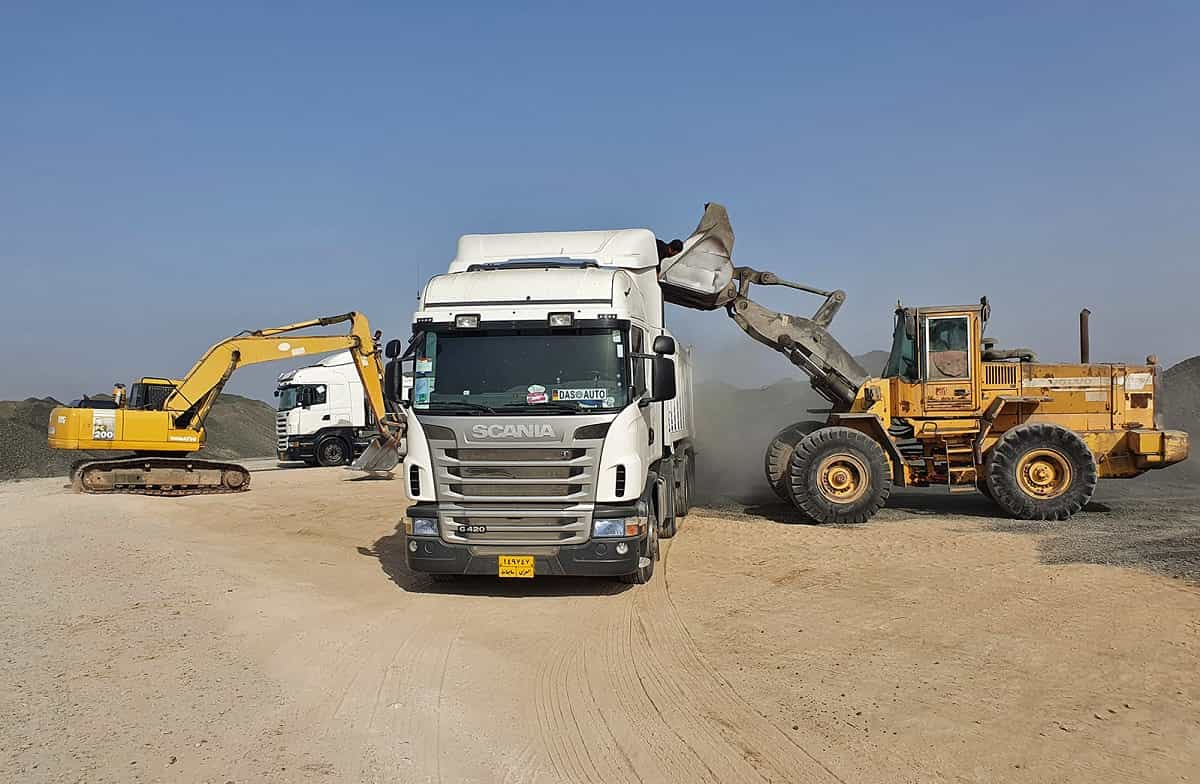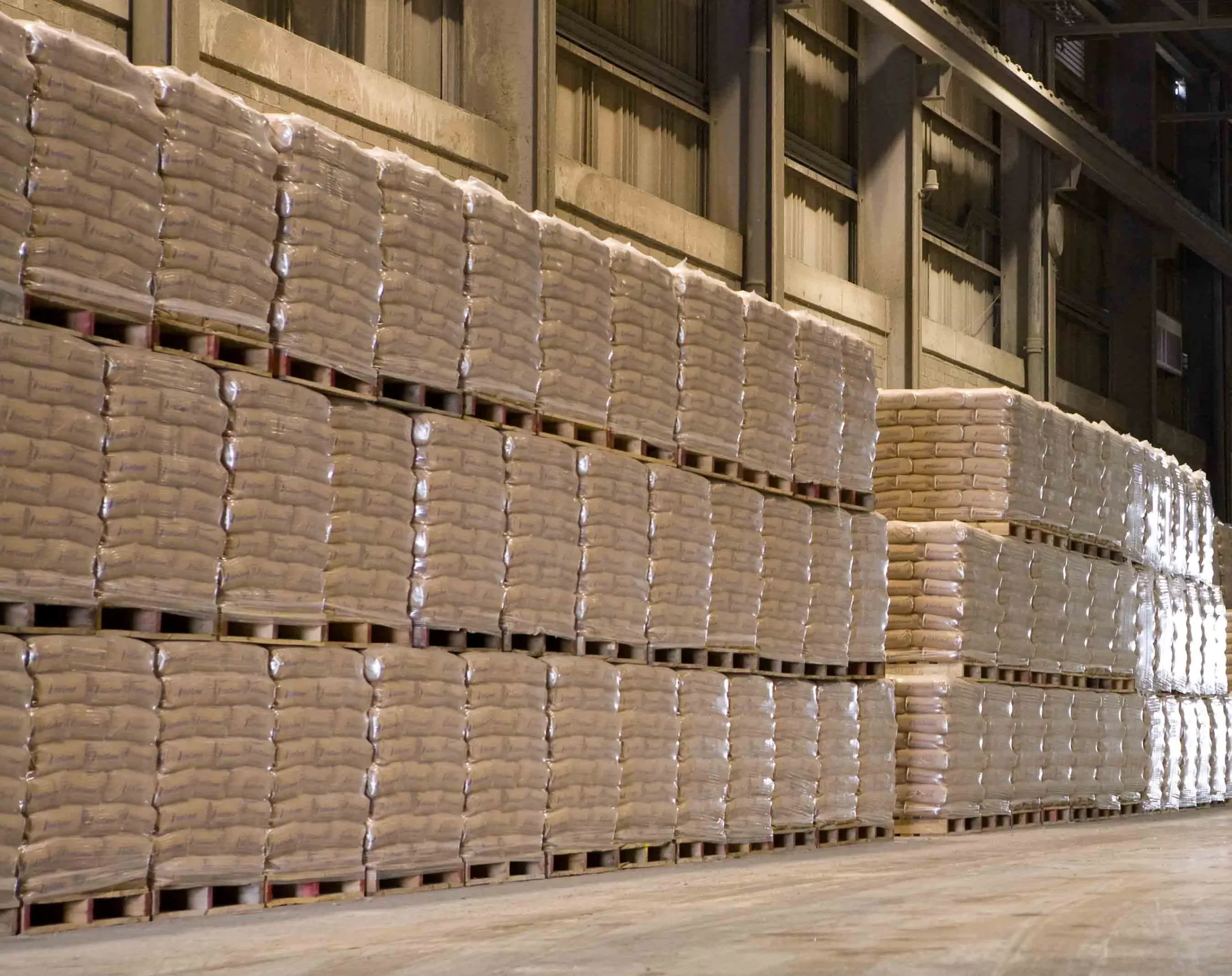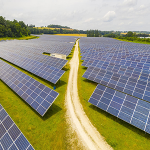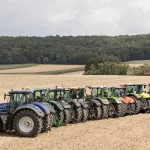Clinker
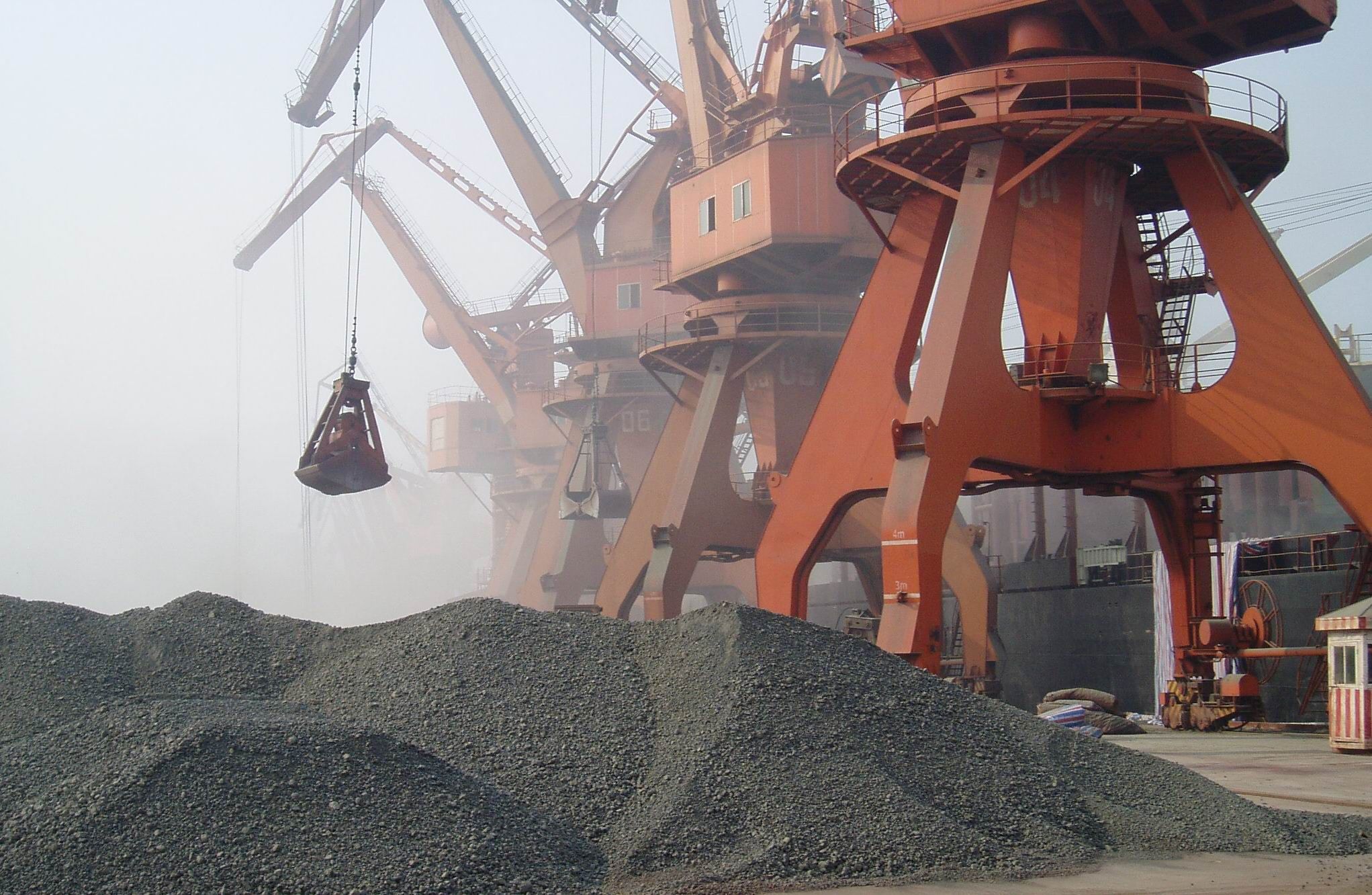
Clinker
Clinker is an intermediate product in the production of Portland cement. Clinkers are small, hard nodules that range in color from dark gray to black. The production process of clinker involves heating raw materials (typically limestone and clay) in rotary kilns to a temperature of about 1400 to 1500 degrees Celsius. This process bonds the raw materials together and produces clinker.
Clinker Production Process
- Raw Material Preparation: The raw materials required for clinker production include limestone, clay, and other minerals, which are mixed in specific proportions. This mixture is ground into a powder.
- Preheater: The raw material powder is heated in a preheater to remove moisture and some carbon dioxide.
- Rotary Kiln: The heated raw materials enter a rotary kiln, where they are heated to about 1400 to 1500 degrees Celsius. Various chemical reactions occur, leading to the formation of clinker.
- Cooling: The hot clinker exits the kiln and is rapidly cooled to form the desired crystalline structure. This cooling is typically done using air.
Chemical Composition of Clinker
Clinker primarily consists of calcium silicates and aluminates. The main components include:
- Tricalcium Silicate (C3S): Responsible for the initial strength of cement.
- Dicalcium Silicate (C2S): Contributes to the final strength of cement.
- Tricalcium Aluminate (C3A): Accelerates the setting time of cement.
- Tetracalcium Aluminoferrite (C4AF): Enhances the color of cement and improves its hydraulic properties.
Applications of Clinker
Due to its unique physical and chemical properties, clinker has various applications in the construction industry and building material production. Here are some of the main applications:
- Portland Cement Production The primary and most significant application of clinker is in the production of Portland cement. Clinker is ground with a small amount of gypsum to produce Portland cement, which is used as a binder in concrete and mortars. Due to its high strength and appropriate setting time, it is one of the most widely used construction materials in the world.
- Specialty Cement Production Clinker is the base for producing various types of specialty cement, such as white cement, colored cement, and pozzolanic cement. By altering the production process and adding different additives, cement with specific properties for special applications can be produced.
- Concrete Production Clinker is a key component in the production of cement used in concrete manufacturing. Concrete is one of the primary materials used in the construction of buildings, bridges, roads, and other infrastructure.
- Precast Concrete Industries Clinker is used in the production of precast concrete components such as cement blocks, concrete panels, concrete pipes, and other prefabricated building materials. These components, known for their high strength and long durability, are widely used in industrial and urban construction.
Advantages of Using Clinker
- High Strength and Durability Due to its chemical composition and crystalline structure, clinker provides high strength and durability. Cement made from clinker can withstand high pressures and harsh environmental conditions.
- Adjustable Setting Time By adding a small amount of gypsum to the ground clinker, the setting time of cement can be adjusted. This feature allows engineers and builders to control the working time with concrete.
- Versatility Due to its diverse properties, clinker can be used to produce various types of cement and building materials. This flexibility makes it suitable for a wide range of applications.
Environmental Challenges and Considerations
- High Energy Consumption The clinker production process requires high energy consumption due to the need to heat raw materials to very high temperatures. This leads to the extensive use of fossil fuels and the emission of greenhouse gases.
- Carbon Dioxide Emission Clinker production results in significant carbon dioxide emissions, one of the main greenhouse gases. This poses serious environmental impacts, prompting the cement industry to seek ways to reduce these effects.
Optimization and Environmental Impact Reduction Solutions
- Process Optimization Research and development in clinker production process optimization can help reduce energy consumption and carbon dioxide emissions. Utilizing advanced technologies and improving kiln efficiency are some available solutions.
- Use of Alternative Materials Using alternative materials such as pozzolans and industrial slag as additives in cement production can help reduce clinker consumption and consequently reduce environmental impacts.
- Renewable Energy Utilization Utilizing renewable energy sources such as solar and wind energy in cement production can reduce reliance on fossil fuels and decrease greenhouse gas emissions.
Capabilities of Novaran Tose’e Tejarat Rasta in Clinker Export
Novaran Tose’e Tejarat Rasta, with extensive experience and expertise in clinker production and export, is ready to meet the global needs of its clients. Below, we outline the company’s capabilities in clinker export:
1. High-Quality Production
Our company, utilizing advanced technology and modern equipment, produces high-quality clinker that meets international standards. We are confident that our product will meet all technical and quality requirements of our customers.
2. Packaging and Transportation
We understand the importance of proper packaging and safe transportation of clinker. Using the best materials and methods, we ensure that the product arrives at its destination in optimal condition. Our packaging options include big bags, small bags, and bulk packaging, which can be selected based on customer needs.
3. Licenses and Standards
Our company has obtained all necessary licenses for clinker export from relevant government organizations. Additionally, our products are manufactured by national and international standards such as ASTM and EN, ensuring product quality and credibility.
4. Expert Team
We have a team of experienced specialists and experts in production, packaging, transportation, and export affairs. This team, with its technical knowledge and experience, manages all stages of export in the best possible way.
5. Customer Service
Our company is committed to providing excellent customer service. From the initial contact to the final delivery of the product, we maintain communication with our clients, ensuring their needs and requirements are met. Our after-sales services also include technical support and consultation in various fields.
6. Extensive International Network
We have an extensive network of international partners and clients, enabling us to identify new markets and export our products to various parts of the world. Our experience in international markets and familiarity with the regulations and laws of each country assist us in achieving successful and seamless exports.
Contact Information
WhatsApp: +98 912 683 5639
Phone: +98 21 8877 0680
Telegram: Business Hub SAVA
Please do not hesitate to contact us for further information or inquiries regarding our clinker production and export services.

